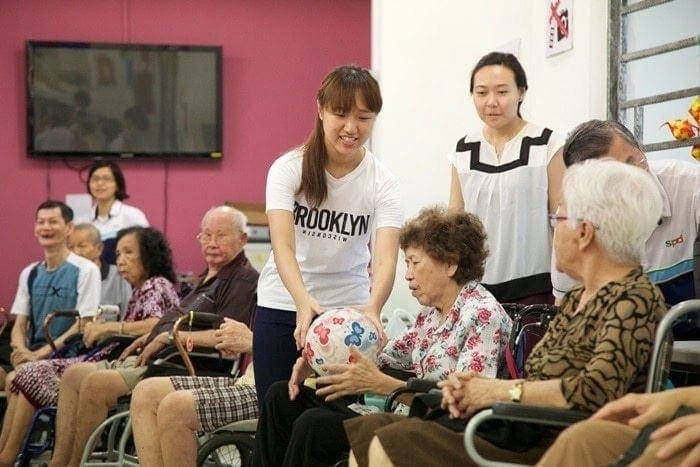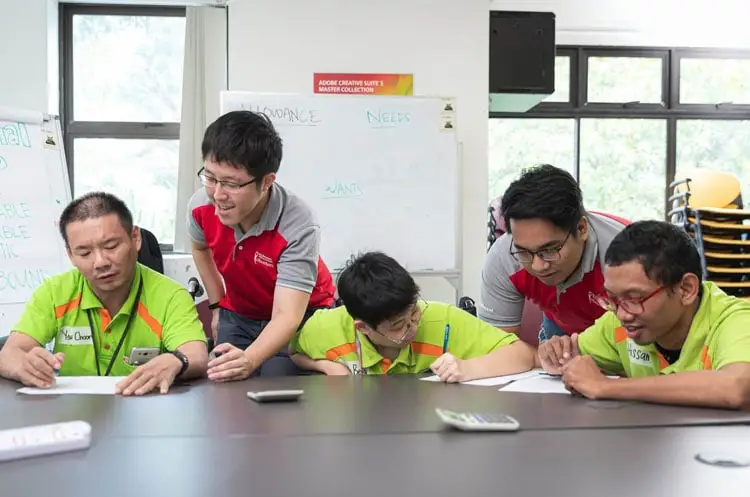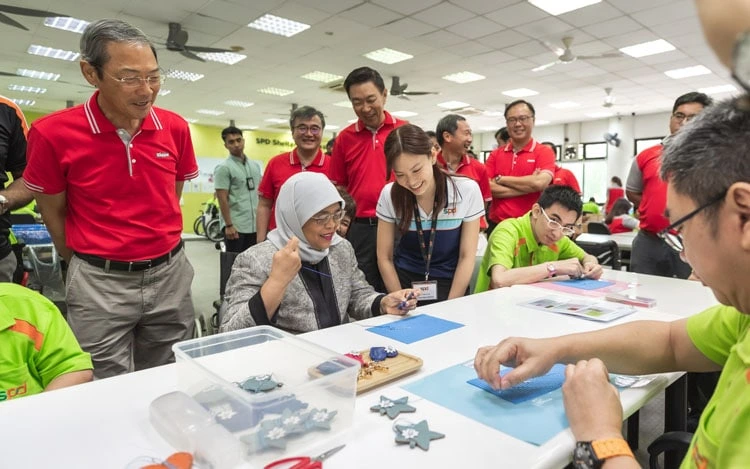Social advocate and former Nominated Member of Parliament Ms. Chia Yong Yong on the importance of the private sector in Singapore’s social causes
Ms. Chia Yong Yong, a long-time campaigner for people with disabilities and a solicitor with her own law firm, fondly remembers her time as a secondary school student in Paya Lebar Methodists’ Girls School.
The former president of the SPD, who is now a member of its board advisory panel, says her teachers and classmates treated her as they would anyone else, despite using a wheelchair to move around.
“My teachers would scold and punish me if I didn’t do my homework, or if I was too talkative,” she reminisces.
Buildings in the 1960s weren’t designed with people with disabilities in mind, but her teachers did not hesitate to relocate her classroom to the ground floor.
Her schoolmates would help lift her wheelchair up the stairs if she needed to access higher floors. Some of them helped carry her bags.
Because of these acts of empathy and kindness, Chia has never felt out of place growing up, despite having a degenerative condition called peroneal muscular atrophy.
She attributed this sense of acceptance to a tight community of teachers and students, who supported her journey through secondary school without question.
Reigniting the community spirit
But while accessibility for people with disabilities has improved tremendously in Singapore, she finds the sense of community during her childhood years severely lacking.
As Singaporeans moved into high-rise flats in the 1970s and 1980s, the “kampong” spirit that enlivened communities was displaced. “People are getting ‘atomised’ and are now living too comfortably in their own bubbles, ” says Chia, who lived in a small village growing up.
Today, many people make time in their busy schedules to contribute to non-profit causes, be it through financial donations, corporate social efforts, or by volunteering their time. By doing so, Singapore ensures the community spirit is kept alive.
As a long-time volunteer and social advocate, Chia shared some insights on how corporates and individuals can give back to the community, at the Greater launch’s In Conversation session, held in April at the Great Room Raffles Arcade.
Here are a few ways to do just that.
Look out for your neighbour
During a visit to South Korea, Chia learned from some Japanese disaster recovery experts that many elderly and people with disabilities perished unnecessarily during the 2011 Tohoku earthquake and tsunami.

People on their wheelchairs rest at an evacuation centre in Kesennuma, Miyagi Prefecture in northern Japan, after an earthquake and tsunami struck the area, March 15, 2011. (Image Credit: Reuters/Kyodo)
Chia noted they would not have died if their neighbours knew of them. Whether someone is suffering financially, or is a victim of domestic violence, keeping an eye out for one another is a small but significant effort towards building community.
“If we’re on good terms, we could be that friend. But in addition, we could activate the relevant avenues of help. And that will be so important,” says Chia.
Assist the community in a holistic way
Chia notes that there will always be pockets of society, as well as gaps within social assistance schemes, that are not addressed.
Some examples include counselling for caregivers of people with disabilities, or friendship for the elderly who live alone.

Image Credit: SPD
As an advisor of SPD’s board, Chia is constantly making recommendations to SPD’s officers to ensure no one is left out. “We always want to know how we can do better,” says Chia.
Redesigning the job for people with disabilities
Chia considers herself lucky as she had a strong support network and a chance to pursue law.
And these opportunities should be afforded equally to everyone in the community. Employers can utilise government grants to make their workspace more disability-friendly, for instance.
“Employers could also make it easier for people with disabilities to work” suggests Chia.
“Ask how they can help them to do their jobs better,” she adds. “Give them tasks they are good at to reaffirm their strengths,”

Image Credit: SPD
Contribute your own expertise
“There are so many ways that the community can contribute,” says Chia. “They could join charity boards, while IT companies can provide digitisation support to manage volunteers”.
For instance, corporations can assist nonprofits with strategic planning and organisational excellence, for the latter to improve their long-term sustainability.
Chia noted that the SPD board is made up of private sector executives and professionals, who help them “think like corporates”.
“Government funds and donations are limited, and our needs are growing. Charities need to reinvent themselves and go to the next level,” says Chia.
SPD has benefited greatly from partnering with corporations. In its early years since its founding in 1964, it provided employment opportunities in its sheltered workshop for people with disabilities.

SPD and Keppel collaborate to enhance SPD Sheltered Workshop. (Image Credit: SPD)
Today, it has over 20 programmes that range from early intervention, assistive technology, day care, educational, employment and social service support. It counts Keppel Corp, Asia Pacific Breweries, Far East Organization and UBS as some of its key corporate patron.
“By partnering with the right charity, you will see the impact of your investment. And I call it an investment because you are really investing in life. You’re investing in the career of people,” she says.
**
Improving communities is one of the key tenets at Greater. Join us to learn more about making a positive impact on society and the world.


